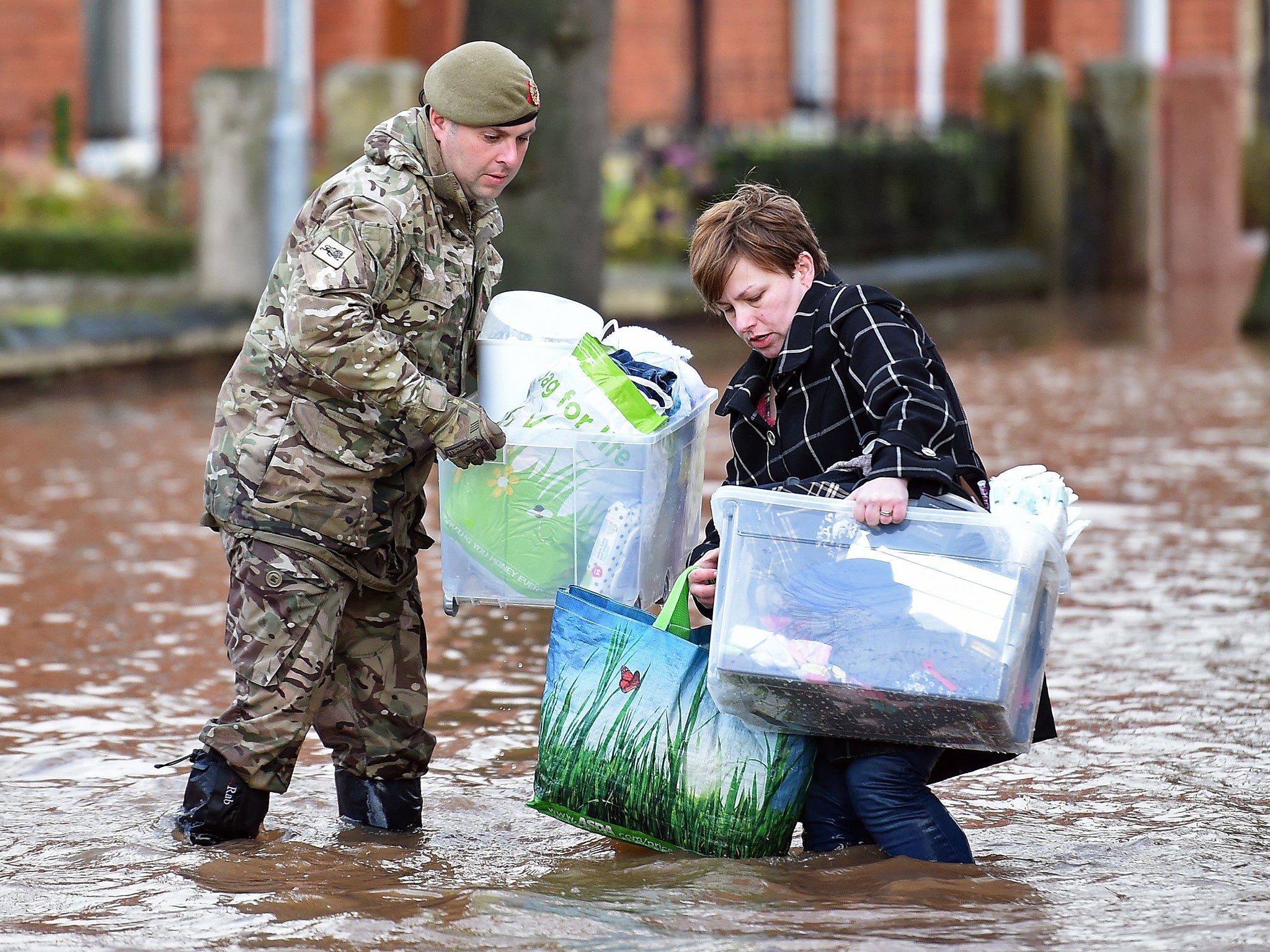Storm Desmond: Britain needs better flood defences, but we must also wake up to reality of climate change
Old expectations about 'freak' weather events are being recalibrated

It is going to be a grim Christmas for many residents of Cumbria. The clean-up operation after the flooding of recent days will be no easy task and, for those who were affected by the floods of 2009, it will be particularly demoralising. Having only returned to an even keel so recently, they might reasonably wonder whether all the effort was worth it. They might also feel less inclined to believe the “once in a lifetime” mantra that usually accompanies weather of the sort witnessed last weekend: unless the lifetime in question is that of a goldfish.
Inevitably, the Government is under pressure to explain how the flood defences built after the last great deluge were unable to withstand the most recent one. The Environment Agency is right – and brave – to say the new barriers worked, but as its director of flood and coastal risk went on to add: “The amount of rain, and the water in the river, overtopped them.”
There is an uncomfortable truth here, in that it is almost impossible to create a scenario in which there is absolutely no risk of flooding – unless it is at the expense of a particular area’s innate character.
This isn’t to say that more should not be done or that at-risk areas should simply be abandoned to rising rivers. Indeed, after every event such as this one – which continues to affect large swathes of North-west England, southern Scotland and Northern Ireland – the Government faces enormous costs simply to deal with the aftermath. Insofar as it is possible, prevention remains the best strategy.
Yet it is becoming increasingly obvious that physical flood defence barriers are only a small part of the answer. The National Flood Forum charity has called once again for improved land management upstream from vulnerable residential areas. And the Flood and Water Management Act 2010 explicitly encouraged local authorities to consider natural methods to counter flooding, working closely with farmers, major landowners and developers to ease pressure on major water courses.
For farmers in particular there can be a crucial role, albeit one which will renew the debate about whether they should more suitably be described as “land managers”. A few will baulk at the notion but, with some parts of the traditional farming industry struggling to compete against cheap foreign imports and under pressure from supermarket price wars, there is sense in diversification. Councils should utilise the skills of those who know the countryside best – and pay farmers appropriately to take natural flood management seriously.
The high profile of the ongoing UN climate conference in Paris meant that questions about climate change were always likely to be high on December’s news agenda. Appalling floods in the Indian state of Tamil Nadu, which have killed close to 300, added to the sense of urgency. And now Britain’s own travails have redoubled the focus on climate change.
It is notable, in fact, that however extreme the floods in parts of the UK have been, the overarching consensus seems to be that they are more likely to reoccur than might have been thought in years gone by. The Met Office’s chief scientist, Professor Dame Julia Slingo, suggested that all the evidence points to a link between climate change and record-breaking winter rainfall. To put it most simply, we are starting to wake up to an altered reality. Old expectations about “freak” weather events are being recalibrated; new methods of prevention and cure must be found and funded. And as a nation of islanders, we may have to rediscover a lost resilience in our relationship with water.
Join our commenting forum
Join thought-provoking conversations, follow other Independent readers and see their replies
Comments
Bookmark popover
Removed from bookmarks